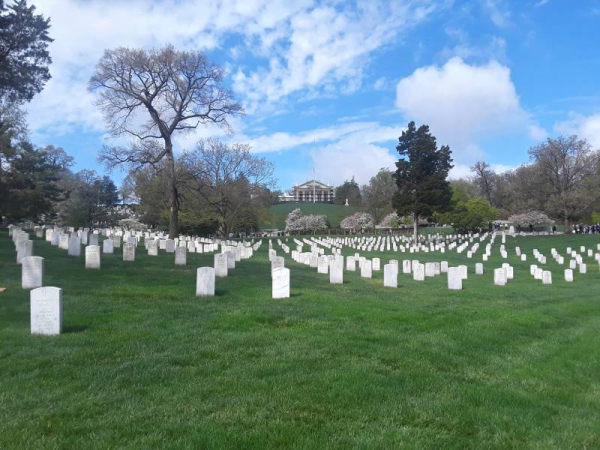General William Tecumseh Sherman, who was on the anti-slavery side of the American #CivilWar, began his March to the Sea OTD in 1864 https://cromwell-intl.com/travel/usa/washington-lee-mansion/?s=mb #CivilWar #travel #history

Robert E. Lee's Home in Arlington
Robert E. Lee, who turned traitor and resigned from the U.S. Army to lead the Confederate military, lived in a mansion his wife inherited. Now its land is Arlington Cemetery.Bob's Pages of Travel, Linux, Cybersecurity, and More

LukefromDC •
Sherman's biggest negative was he could not understand that the people he was liberating from slavery were equal in value to himself. He is reported to have considered the freed people who followed behind his army for protection as a nusiance and burned bridges before they could cross.
In his shoes I would have raided armories so the freed workers could be armed, with folks then given the option of becoming part of my army or forming a guerilla army of their own. Probably some would choose each option. The result would be to destablize the entire Confederacy as once enslaved people now armed and and furious assaulted other plantations to free their relatives from the worst of all possible fates.
That would have made it possible for the Civil War to end in a repeat of Haiti's revolution, where so many slaveowners were hunted down and the rest driven off the island.
Would probably have cost me my own neck if I dared returned to Washington DC, given the northern factory owners were but slavers of a different type and would fear being next. Probably the Black-controlled former Confederacy would have then been refused readmission to the Union, again to protect exploitation of labor in the North.
If they preferred or were stuck with independence, who is better positioned to feed themselves than agricultural workers who just got control of the exact land they used to work for others? They could switch to food crops for self sufficiency (e.g if facing a trade boycott) , or gain a near-monopoly of the cotton, tobacco, and several other cash crop markets for themselves. If boycotted, they could refuse to pay "reparations" and hold out essentially forever, growing plenty of food to leave time to grow local craft industries as well.